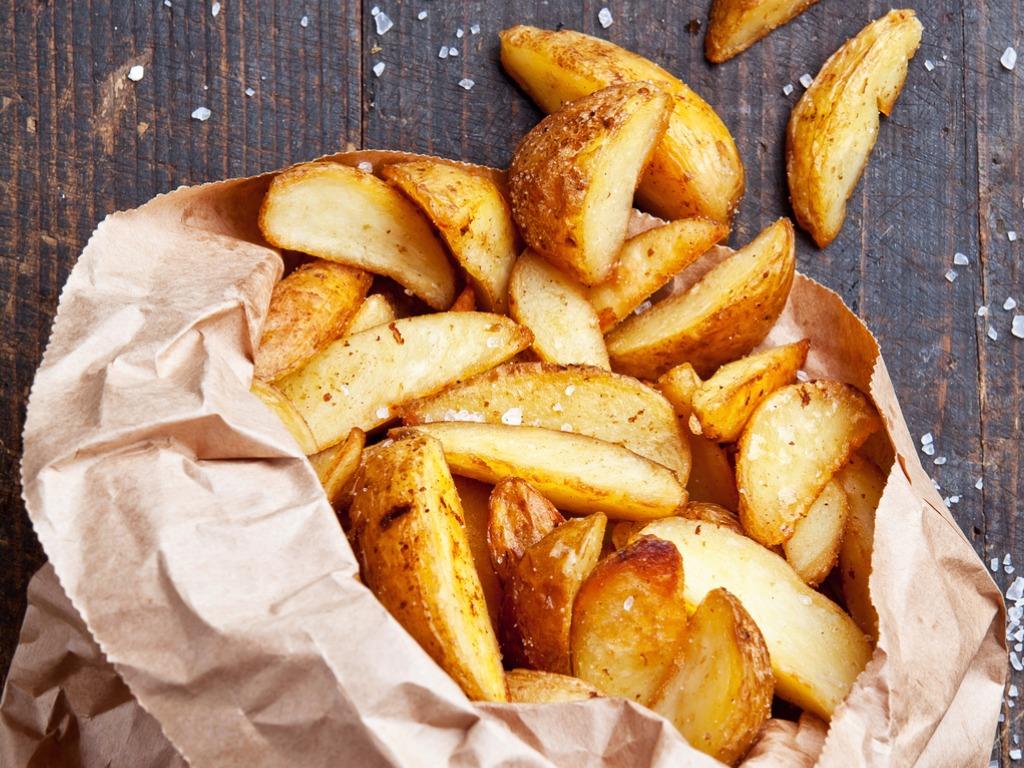How to eat carbs and lose weight
Because carbs are life

When trying to lose weight, many people cut out carbs. But this is a huge misconception, according to a top nutritionist.
Thanks to the rise of the Atkins diet decades ago and the Keto (high-fat low-carb) diet more recently, not to mention slogans like “No carbs before Marbs” gaining popularity through reality TV shows, many of us fear carbs.
But the science behind carbohydrates is actually very complex, and demonising an entire food group is not wise, Rhiannon Lambert, author of Re-Nourish, A Simple Way To Eat Well, explained to The Independent.
Refined and complex carbs are very different, and it’s important to distinguish between the two.
“Our brains can only process glucose for fuel efficiently and lots of studies conducted at respected universities and research centres have shown resistant starch (found in carbs) help you eat less, burn more calories, feel more energised and less stressed, and lower cholesterol,” Lambert says.
Of course, there are carbs and there are carbs - choose oatcakes over a pastry and you’ll be kept fuller longer and won’t have such a spike and drop in energy levels.
It is possible to eat carbs and lose weight, you just need to know the low-down.
1. Eat the right carbs
Let’s take potatoes as an example - Lambert calls them “a nutrition powerhouse”, full of fibre, filling and with a low energy density.
“On the other hand, potato chips, deep fried in oil, with salt and pepper and maybe even a dipping sauce... now you've got a highly fattening food that is easy to over-consume,” Lambert explains.
Instead of chips, she recommends roasting potato wedges with olive oil and rosemary for a healthy alternative.
2. Low-carb does not mean ketogenic
On a keto diet, you’d usually eat under 50 grams of carbs a day (which is a tiny amount), with a very high fat intake.
“Ketosis (switching from burning carbs to body fat) can be a highly beneficial metabolic state, especially for people with certain diseases like diabetes, metabolic syndrome, epilepsy or obesity but this really is not the only way to do a ‘low-carb’ diet,” Lambert says.
Low-carb can be anything up to 100-150 grams of carbs per day, she explains, which can include several pieces of fruit a day and even small amounts of whole, starchy foods like potatoes.
3. Not all carbs are unhealthy sugar
There are many different types of sugar, including glucose, fructose and galactose.
But although starches like grains and potatoes get broken down into glucose in the digestive tract, raising blood sugar levels, the sugar in a potato is not the same as that of a chocolate bar.
“Whereas table sugar contains half glucose, half fructose, starch is only glucose,” Lambert explains. “It is the fructose portion of sugar that is the bit to be concerned about, starch (glucose) does not have the same effect inside the body. A balanced diet with portion control and complex carbohydrates can work well for weight loss.”
4. You can gain weight by eating a low-carb diet
When following a low-carb diet, many people turn to foods that are high in fat and calories - even the good fat in too large a portion can cause a problem with weight gain, Lambert points out.
“Portion sizes are crucial no matter what diet you follow,” she says. “Many low-carb foods can be fattening, especially for people who are prone to binge eating and have a history of fad diets.”
So yes, indulgent foods like cheese, nuts and cream can’t be mindlessly snaffled just because you’re on a low-carb diet - you could end up gaining weight as a result.
5. Energy and fibre matter
Lambert is an advocate of focussing on nutrients rather than numbers, it’s worth being aware that per gram, fat contains more calories than carbs and protein. Fat is 9 kcal per gram, carbs and protein are 4 kcal per gram, and alcohol is 7 kcal per gram.
Carbs also contain fibre which our bodies can’t digest - “Fibre actually gets to the bacteria in the intestine, which has the enzymes to digest it and can turn it into beneficial compounds, like the fatty acid butyrate,” Lambert says.
In other words, fibre is essential for a healthy gut, which has been linked to maintaining a healthy weight. Some studies have even shown that fibre, especially soluble fibre (like those found in oats), can lead to weight loss and improved cholesterol.
“Aim for a mix of vegetables and wholegrains in your diet to boost fibre consumption and drink plenty of water,” Lambert advises.
6. Carbs make you happy
Anyone who’s tried Atkins will probably agree that a life without carbs can make you tetchy, have mood swings and struggle to concentrate. It’s not fun. This is because carbs play an important role in creating serotonin, your happy hormone.
“One of the amino acids (building blocks of protein) tryptophan plays a key role in this,” Labert says. “It cannot cross the brain’s blood barrier and needs carbs to help it cross over.
“Tryptophan converts to serotonin and serotonin to melatonin, which is involved in our sleep cycle. Therefore, carbs make you happy and help you sleep, both of which are important factors for weight loss.”
7. Cutting carbs is unsustainable
Although some people experience initial weight loss from a no-carb diet, most can’t maintain it. “Fad diets don’t work,” Lambert says, adding that we should all be aiming for a clean, balanced diet.
“If you want to lose weight, look at portion control, a diet that is tailored to your needs, and up your exercise so that you’re burning off more calories that you eat. It’s that simple.”
Click here for Just Eat discount codes
Join our commenting forum
Join thought-provoking conversations, follow other Independent readers and see their replies
Comments
Bookmark popover
Removed from bookmarks